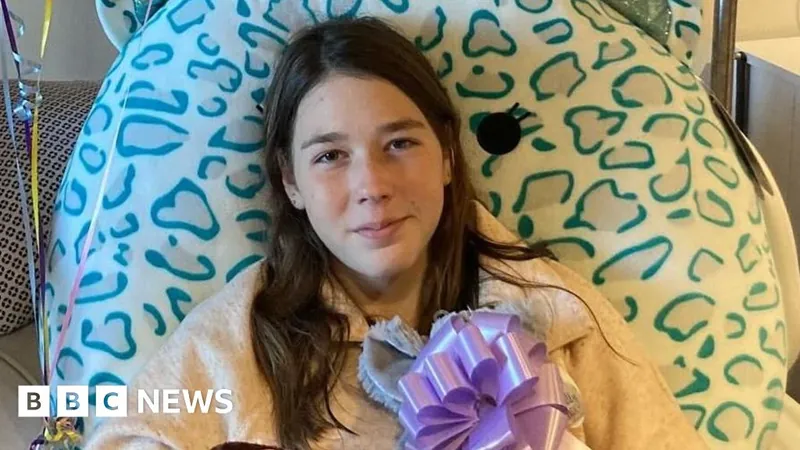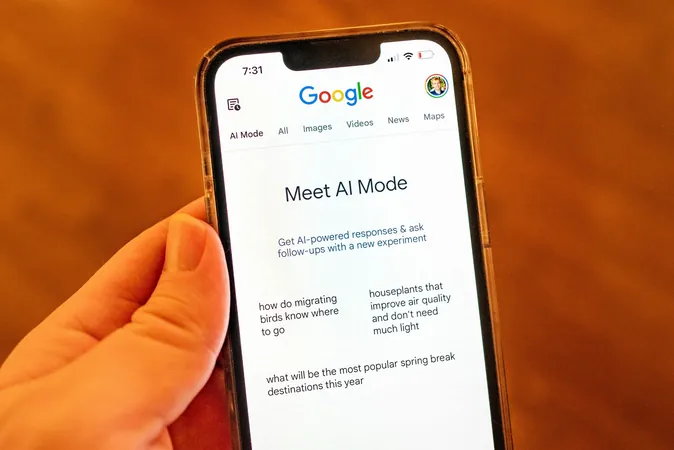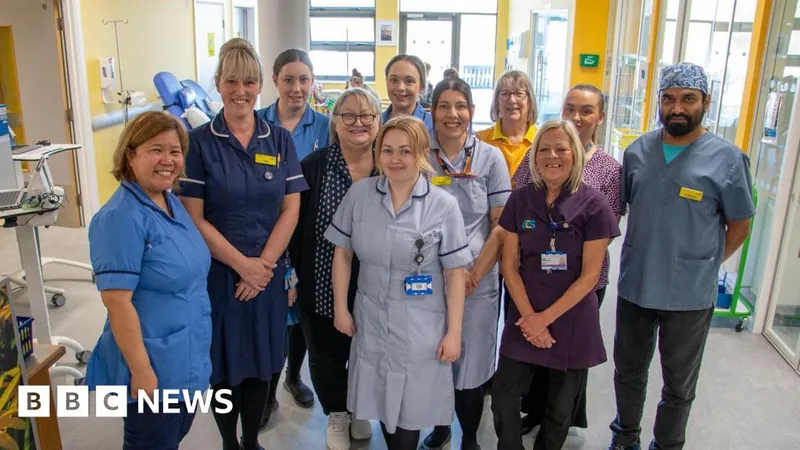
From Darkness to Hope: Teen Triumphs Over Aggressive Brain Tumor
2025-04-13
Author: Wei Ling
Inspiring courage shines through the journey of 18-year-old Indi Powell, whose fight against a brain tumor the size of a grapefruit left her struggling to walk and read.
Hailing from Windsor, Berkshire, Indi's ordeal began at just 14 years old while she was living in the U.S. in 2021 when she started experiencing debilitating headaches. An MRI confirmed her worst fears: she was diagnosed with an aggressive grade four glioblastoma on the right side of her brain.
Feeling fortunate that her tumor was discovered and removed in time, Indi passionately advocates for greater awareness and research into this devastating disease. Post-surgery, doctors warned that she faced significant challenges, including the risk of losing her mobility and cognitive abilities.
After emergency surgery at UNC Chapel Hill in North Carolina, Indi found herself grappling with her new reality—she could speak but struggled to control her body. "It was confusing and frustrating. I knew how to read, but the words had no meaning to me," she recalled.
Despite permanent loss of peripheral vision and a three-week hospital stay, Indi’s spirit shone through as she embarked on comprehensive therapy to recover her mobility and reading skills. Her journey wasn’t over; she faced a second surgery, 32 rounds of radiotherapy, and multiple cycles of chemotherapy.
During the pandemic, treatment became even more difficult, with only one parent permitted to accompany her at a time. Her mother, Lori, described the experience as "heartbreaking," but praised her daughter's incredible resilience.
Indi later qualified for a ground-breaking clinical trial in Washington, D.C. for T-cell infusion therapy, which uses the body’s own immune cells to fight cancer. "That trial gave me hope. My cells produced the most T cells out of everyone, which motivated me to keep pushing through," she said.
Now back in the UK, Indi is focusing on completing her secondary education while actively working with Brain Tumour Research to spotlight the need for more awareness and funding.
"I feel so lucky my tumor was found in time and that surgeons were able to remove it. But not everyone has the same fortune; we need more research and awareness. I'm living proof that research saves lives," she declared.
According to Brain Tumour Research, approximately 12,000 people are diagnosed with a primary brain tumor every year, making it a leading cause of cancer-related death in children, surpassing even leukemia.
Louise Aubrey, the charity's community development manager, commented, "Indi's story underscores how abruptly brain tumors can alter a young person's life. They are responsible for more deaths than any other cancer in those under 40. Historically, only 1% of national cancer research funding has gone towards this critical area. We desperately need more financial support to enhance patient outcomes and survival rates."
The charity is advocating for a significant increase in annual funding, requesting £35 million to improve survival outcomes and align them with those of other cancers like breast cancer and leukemia.




 Brasil (PT)
Brasil (PT)
 Canada (EN)
Canada (EN)
 Chile (ES)
Chile (ES)
 Česko (CS)
Česko (CS)
 대한민국 (KO)
대한민국 (KO)
 España (ES)
España (ES)
 France (FR)
France (FR)
 Hong Kong (EN)
Hong Kong (EN)
 Italia (IT)
Italia (IT)
 日本 (JA)
日本 (JA)
 Magyarország (HU)
Magyarország (HU)
 Norge (NO)
Norge (NO)
 Polska (PL)
Polska (PL)
 Schweiz (DE)
Schweiz (DE)
 Singapore (EN)
Singapore (EN)
 Sverige (SV)
Sverige (SV)
 Suomi (FI)
Suomi (FI)
 Türkiye (TR)
Türkiye (TR)
 الإمارات العربية المتحدة (AR)
الإمارات العربية المتحدة (AR)